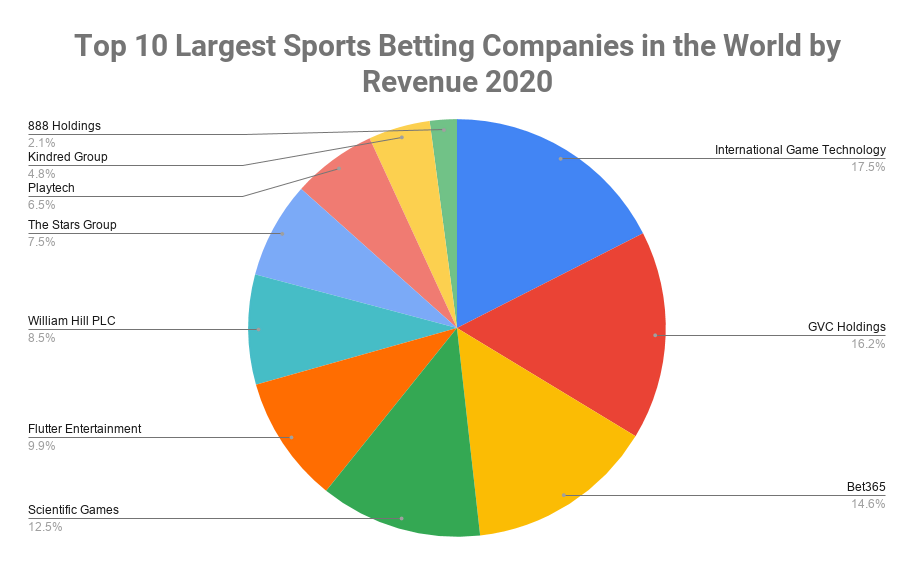How Do Sports Betting Companies Make Money

The sports betting industry is booming, a multi-billion dollar behemoth fueled by our collective love of games and the thrill of predicting outcomes. But behind the flashing odds and enticing promotions lies a complex and calculated business model. Understanding how these companies generate revenue is crucial, especially as the industry rapidly expands and becomes increasingly integrated into the mainstream entertainment landscape.
This article delves into the core mechanisms that power the sports betting industry's profitability. We will explore the "vig" or "juice," a fundamental pricing strategy, dissect various revenue streams beyond traditional bets, and examine the impact of technological advancements and regulatory landscapes. We'll also consider the challenges and potential downsides, aiming to provide a balanced perspective on this evolving industry.
The Foundation: The Vig (or Juice)
The cornerstone of any sportsbook's profit margin is the vig, also known as the juice. This represents the commission that the bookmaker charges on every wager.
Rather than offering true odds (which would reflect the exact statistical probability of an event), sportsbooks adjust the odds slightly in their favor.
This difference, the vig, guarantees them a profit over time, regardless of the outcome of any single game.
How the Vig Works
Consider a simple coin flip. True odds would be even (50/50), represented as +100 in American odds.
A sportsbook might offer -110 on both sides, meaning you'd have to bet $110 to win $100.
If equal amounts are wagered on both outcomes, the sportsbook pockets the $10 difference, regardless of whether heads or tails wins.
According to a report by the American Gaming Association (AGA), the average hold percentage (a key metric reflecting the vig) for sportsbooks in the US is around 7-8%. This means for every $100 wagered, sportsbooks keep $7-$8 on average.
Beyond the Vig: Diversifying Revenue Streams
While the vig is the primary source of income, sports betting companies have diversified their revenue streams to maximize profitability and mitigate risk.
These include offering a wider range of betting markets, leveraging technology for in-play betting, and utilizing sophisticated marketing strategies.
In-Play Betting (Live Betting)
In-play betting, or live betting, has revolutionized the industry. It allows users to place wagers on events while they are happening.
This rapid-fire action generates a significantly higher volume of bets compared to pre-game wagers, translating to increased revenue for sportsbooks.
The margins on in-play bets can sometimes be higher than pre-game bets due to the increased volatility and difficulty in accurately assessing odds in real-time.
Parlays and Prop Bets
Parlays, which combine multiple bets into one, offer higher payouts but are also statistically less likely to win.
This inherent risk allows sportsbooks to offer more favorable odds (for them), increasing their profit margin on these types of wagers.
Prop bets, which focus on specific events within a game (e.g., how many touchdowns a player will score), are also popular and contribute significantly to revenue.
Data and Technology
Advanced algorithms and data analytics play a crucial role in setting odds, managing risk, and personalizing the user experience.
Sportsbooks invest heavily in technology to collect and analyze vast amounts of data, enabling them to offer competitive odds while maximizing profitability.
Data-driven marketing strategies also allow them to target specific demographics with tailored promotions and bonuses, further boosting engagement and revenue.
The Impact of Regulation and Competition
The regulatory landscape surrounding sports betting varies significantly across different jurisdictions. This impacts the operational costs and revenue potential of sportsbooks.
Higher taxes and stricter regulations can reduce profit margins, while a more liberalized market attracts more players and generates higher overall revenue.
The level of competition within a market also influences pricing strategies and promotional offers.
In highly competitive markets, sportsbooks may offer more generous bonuses and promotions to attract and retain customers, potentially impacting their short-term profitability. However, these investments can pay off in the long run by building brand loyalty and market share.
Challenges and Considerations
Despite the industry's growth, sports betting companies face several challenges. These include dealing with problem gambling, maintaining integrity in sports, and managing the increasing cost of acquiring and retaining customers.
Responsible gambling initiatives are becoming increasingly important, and sportsbooks are investing in tools and resources to help prevent and address problem gambling behaviors.
Maintaining the integrity of sports is paramount, and sportsbooks collaborate with leagues and regulatory bodies to detect and prevent match-fixing and other forms of corruption. The NCAA has long been concerned about the impact of sports betting on amateur athletics.
The Future of Sports Betting Revenue
The sports betting industry is expected to continue growing in the coming years, driven by increased legalization, technological advancements, and evolving consumer preferences.
The integration of artificial intelligence (AI) and machine learning will further enhance the user experience and optimize revenue generation.
Expect to see more personalized betting options, interactive experiences, and innovative marketing strategies as sportsbooks compete for market share in this dynamic and rapidly expanding industry.

















